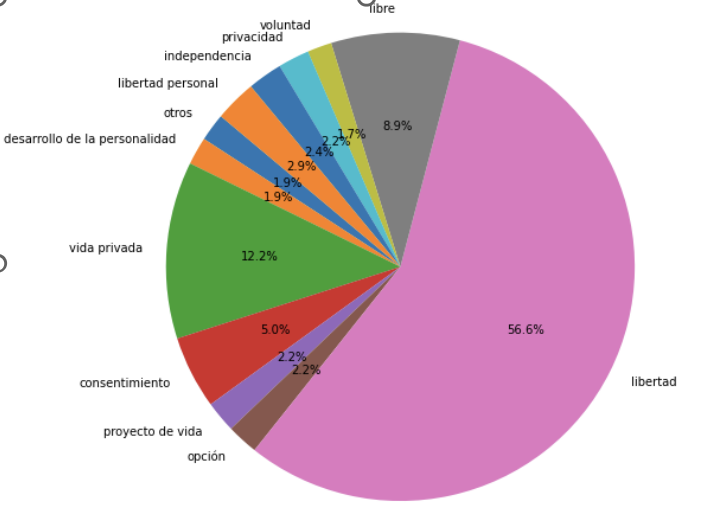Dignity and Autonomy in the Discourse of the Inter-American Court of Human Rights. Experience Working with a Dictionary of Terms
DOI:
https://doi.org/10.5944/rhd.vol.9.2024.40224Keywords:
Dignity, Autonomy, Interamerican Human Court of Human Rights, Dictionary, LIWC-22Abstract
Dignity is one of the central legal concepts in international human rights law. The Inter-American system is part of this reality and, in addition to including the term in its treaties, it is also used by the Inter-American Court of Human Rights. One of the meanings usually attributed to dignity is its link with autonomy. Here we propose to investigate how the Court refers to dignity as autonomy through the use of the software LIWC-22. In order to measure how much the Court uses the notion of dignity associated with autonomy, we have elaborated a dictionary of associated terms. After validating this dictionary, we used the LIWC-22 software to perform the quantification. This paper focuses on the methodological experience of the construction of categories and the use of technology and, finally, comments on the results.
Downloads

Downloads
Published
How to Cite
Issue
Section
License
Copyright (c) 2024 Helga María Lell, Ramiro Escudero Giménez, Nicolás Lafferriere, Florencia Ratti Mendaña, Guillermo Macbeth

This work is licensed under a Creative Commons Attribution-NonCommercial 4.0 International License.
RHD provides immediate free access to its content under the principle that making research available to the public for free favors greater global knowledge sharing. RHD does not charge fees to authors for the submission or processing of articles
Users can read, download, distribute, print, search, partially reproduce or link to the texts without requesting prior permission from the editor or the author.
RHD does not charge fees to authors for the processing of works, nor fees for the publication of their articles.
RHD is free from the moment of the publication of each issue and its contents are distributed with Creative Commons license No Commercial 4.0 International , which allows the user free and open access, criteria that meet the definition of open access of the Budapest Declaration in favor of open access. This means that they can be copied, used, disseminated, transmitted and exhibited publicly, provided that the authorship and the original source of their publication are cited (magazine, editorial and URL of the work, not used for commercial purposes, mention the existence and specifications of this license of use.
The authors retain the copyright and guarantee the journal the right to be the first publication of the work. The authors are free to distribute their work published in the magazine in other media, such as an institutional repository or inclusion in a book.


